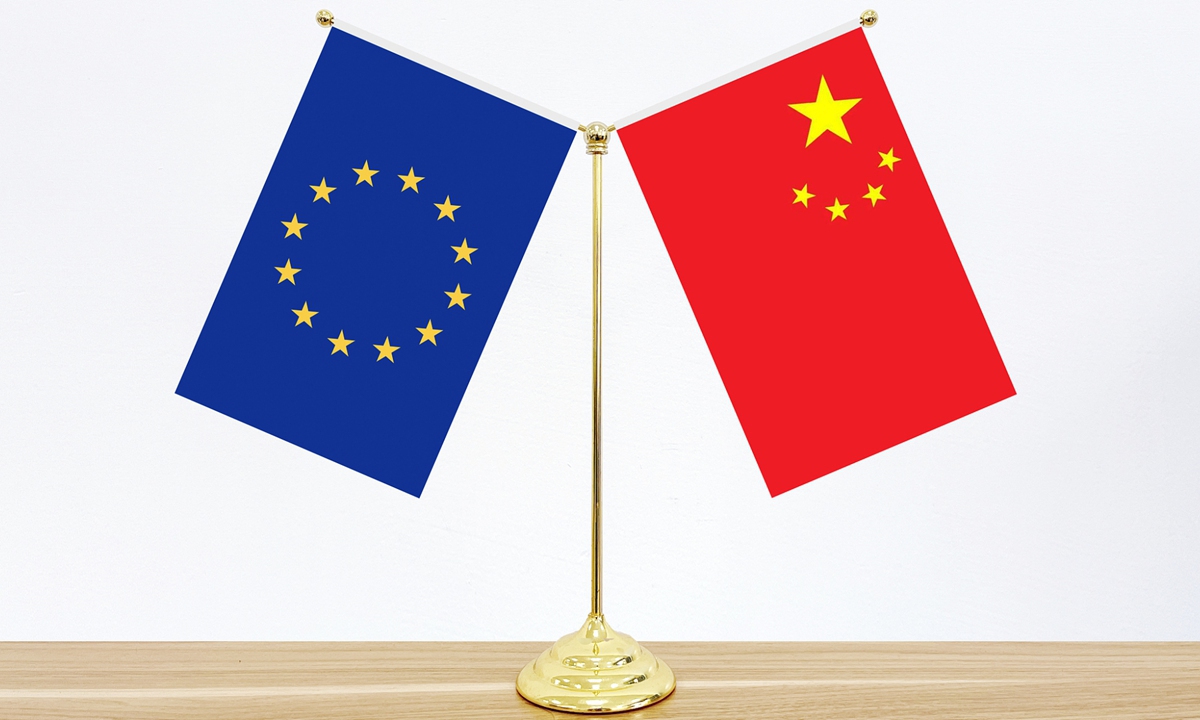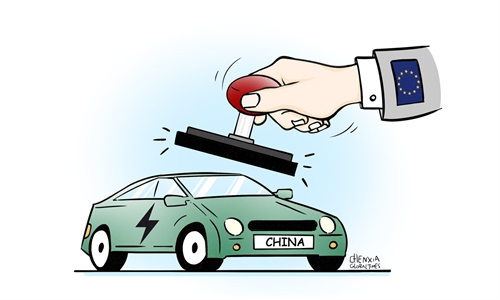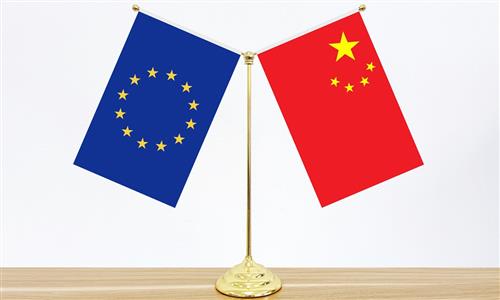Chinese business chamber urges EU to abandon non-market measures that disrupt global raw material supply chain

China EU Photo:VCG
Chinese business chamber urged the EU not to disrupt global supply chain of major raw materials through non-market measures, and provide fair business environment to Chinese enterprises.
The statement by the China Chamber of Commerce to the EU was sent to the Global Times on Wednesday, regarding the approved Critical Raw Materials Act (CRMA), as the act was seen as a move to affect normal China-EU economic activities.
The EU's attempt to find substitutes for Chinese raw material supplies will challenge economic and trade cooperation between China and the EU, and ramp up costs for Europe in its digital and economic transformation, Chinese experts said.
The chamber stated that China and the EU have vast room for cooperation in areas such as the extraction, processing and recycling of critical raw materials, as well as mutual industrial dependence, and called the EU to maintain an impartial attitude toward Chinese companies.
"We hope that the EU will avoid politicalizing and weaponizing economic and trade matters, reduce barriers to market entry and investment, encourage dialogue and collaboration between China and the EU in relevant areas, and provide a fair, equitable, and non-discriminatory business environment for Chinese enterprises," said the chamber.
The European Council announced on Monday the adoption of CRMA to establish a framework to ensure a secure and sustainable supply of critical raw materials, which identifies two lists of materials that are crucial for green and digital industrial transformation, as well as for the defense and space industries.
The CRMA establishes three benchmarks for the EU's annual consumption of raw materials: 10 percent from local extraction, 40 percent to be processed in the EU and 25 percent to come from recycled materials.
The CRMA embodies the strategic intention of breaking dependence on single mineral raw material import sources and breaking the dependence on the supply of refined products from Chinese mineral resources, posing potential challenges to China-EU economic and trade cooperation, Yang Chengyu, an associate research fellow at the Institute of European Studies of the Chinese Academy of Social Sciences, told the Global Times on Tuesday.
The act aims to leverage large-scale investments in global critical minerals to enhance the diversification of mineral raw material sources, Yang said, noting that "This move creates a potential collision between China and the EU in critical mineral resources, intensifying competition for international minerals."
The regulation is filled with strong values and ideological undertones, Chinese experts said.
The close connection of the global green industry chain and China's significant cost advantages in many green industries imply that the EU still needs to rely on China for raw materials, intermediate products and final products to enhance the economic viability of its green transformation and green product manufacturing, Yang said.
China has a strong position in critical mineral mining and a dominant position in processing and manufacturing. China accounts for 85-90 percent of global rare-earth element mine-to-metal refining and it refines 68 percent of the world's cobalt, 65 percent of nickel and 60 percent of lithium, according to a report published on the website of Goldman Sachs in September 2023.
China is an important supplier of some key raw materials for the EU. Given China's enormous production capacity and technological advantages, the EU's pursuit of the "China substitution" strategy in the green sector may lead to rising costs that it could find difficult to bear, Yang said.
Global Times


